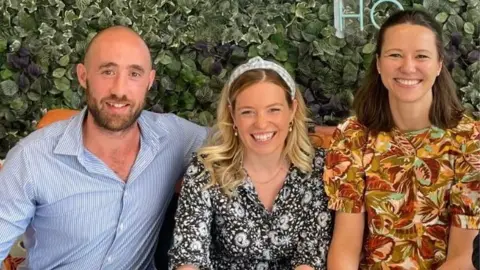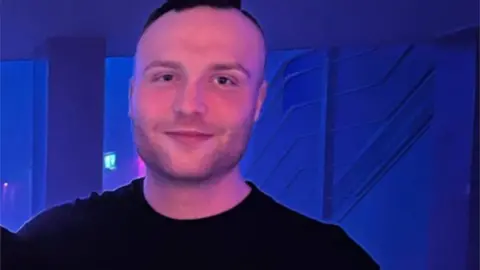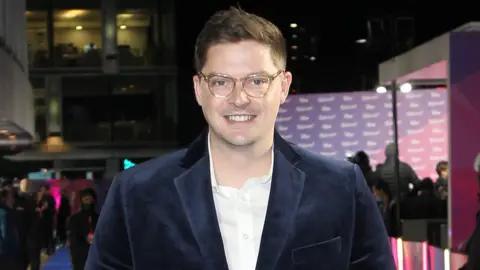Depression myths: 'Stopping medication made me twice as bad'
 Maudsley Learning Podcast
Maudsley Learning PodcastShock headlines suggesting anti-depressants don't work swept across social media recently. The reports have been challenged and some myths debunked. But what is like for people taking medication to read those stories?
"A $15bn hustle?"
"Not based on science."
Just two of the headlines after a medical study - based on an analysis of nearly 30 years of research - found little evidence that depression is caused by a chemical imbalance in our brains.
This led to headlines making a link with anti-depressants, and giving the impression they were a waste of time.
But Nancy, who is currently on the medication, felt the reports were "a soundbite of a complex study".
The 26-year-old says the "fear-mongering" headlines did not give the whole picture.
"It made me feel a little bit like 'Oh, God. Have I just bought into this placebo effect'?" she tells Radio 1 Newsbeat.
"It was weird because it was a medication that kind of gave me my life back."
Nancy fears that it could increase the stigma around medication.
She was originally reluctant to take anti-depressants and has found they really helped her, though she says "everyone's brain is different".
"But some people find different medication works better for them. Like some people might prefer paracetamol or if you feel nauseous you might take aspirin.
"I would say that I personally have found anti-depressants to be like a tool in your self-care arsenal, so to speak. So just something you can have in your back pocket.
"There's plenty of psychiatrists, and doctors and psychologists who are all quite keen to warn against the study's actual findings and outcomes."
 Jake
JakeJake, who suffers with clinical depression and also takes anti-depressants, says the articles "won't do people any good" when it comes to stigma around depression, or help those with the condition.
"I've done the whole stopping medication because I think I'm getting better, and it ends up twice as worse," he says.
"So yeah, I don't think that will help."
The 26-year-old does believe that additional therapies help, and says going to the gym helps him.
He believes that, without working out, he "wouldn't be here today".
The issue has also attracted the attention of medical professionals such as Dr Alex George who called out the questionable articles to his 1.9 million Instagram followers and discussed them on his YouTube channel.
One of his guests, psychiatrist Dr Rebecca Wilkinson, told Newsbeat the misleading headlines spread at a "scary" speed online.
Dr Rebecca, who presents the Maudsley Learning Podcast with Dr Alex Curmi and Dr Anya Borissova, said the misconceptions generated by the headlines have caused frustration among medical professionals.
 Getty Images
Getty ImagesPsychiatrist Dr Alex Curmi said "limitations of the media" sometimes mean "complexities of reports and studies can be lost".
"Articles need to stop being led by what could be the most popular thing but instead focus on trying to see what truths we can discover," he says.
He said it could help patients feel more informed if articles instead explored "what situations the anti-depressants work well or not well in".
Fellow podcast host Dr Anya says the study behind the headlines wasn't trying to establish whether anti-depressants work or not.
"But what we do know is that for some people, anti-depressants are indeed effective treatments for anything from depression, anxiety, and other disorders as well," she says.
Dr Anya did say anti-depressants are just one tool, and "we have other treatments, such as therapy, which is also really, really important".
What other treatment is there?
Dr Alex Curmi explains that there are many other treatments such as:
- Physical exercise
- Spending time outside
- Making sure you have adequate vitamin D levels
- Proper sleep
- Having enough meaningful social connections is very important, because we're very social species
- Find a sense of meaning
Trusted sources
The Maudsley Learning Podcast doctors say it's important to go to your GP for a "treatment plan tailor to you" and also suggested the following places:
Additional advice can be found at mental health charities such as Mind and Young Minds.
Kerry McLeod, head of information content at Mind, says anti-depressants can be a "lifeline for some people".
"We know that they do help a lot of people," she says.
"We also know they are not suitable for everyone, and that they can sometimes have negative side effects. So it's a balance.
"And just because we don't know exactly how they work, it doesn't mean that they don't work."
For details of organisations offering advice and support, go to BBC Action Line.
Some contributors asked that their surnames be withheld.


